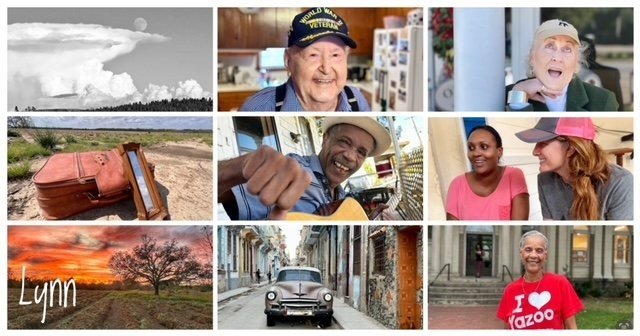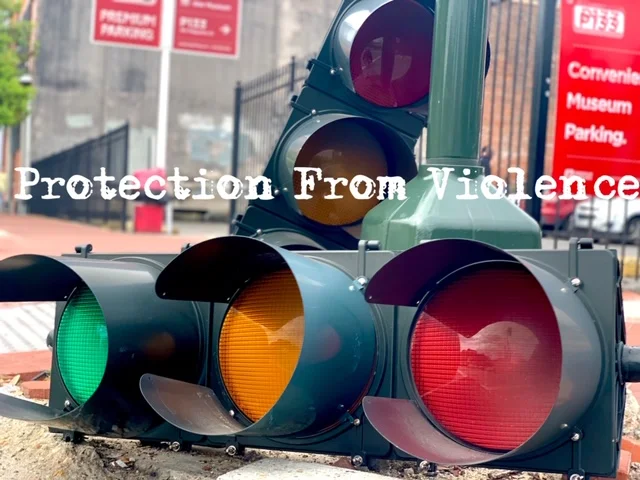The Silent Victims
Savannah sat slouched in a courtroom chair in Strickland Youth Center. Wrapping her arms around herself, she sank into her jacket as Judge Edmond Naman talked with her grandmother about Savannah’s marijuana use, threats against a teacher and truancy charges -- over 40 missed days of middle school in the 2017-2018 school year between Savannah and her brother.
The grandmother, who has her own issues of smoking pot and using Valium, said DHR gave her custody of Savannah and her brother, as well as three other grandchildren taken from another son. Savannah’s parents are drug addicts who divorced and disappeared several years ago, but not before the children grew up in a home of abuse.
Savannah cried as her brother told of being deserted by their parents.
After warning the grandmother to do a better job of raising these kids than she did her first ones, Naman turned to Savannah and said, “You have no respect for your teachers or your grandmother. That has to change.”
“You are a smart girl, Savannah,” Naman said. “You can either let this situation destroy you or rise up. It is time that you have people in your life who care about you. We will find the ones to help you overcome this.”
Rising up is difficult for children like Savannah (not her real name) and her brother, the silent victims of domestic violence. Naman said his truancy court every Thursday is about more than missed classes; it is the front line to uncovering bigger family issues. These hearings may be the only chance to reach kids growing up in homes with behaviors no child should ever see, he said.
“Family dysfunction and poor education are the two factors that lead to social issues and violence in Mobile,” Naman said. “It is hard to understand the cycle of domestic violence if you didn’t grow up in it, but the effects of it are real in our communities and schools. The problems will get worse if we don’t do something about it.”
There is no joy and laughter in children who come from abused homes because they have nothing to laugh about, said Pastor Ruby Eldridge, founder of Pure Word Ministries, a church that provides daycare in the Eight Mile community.
“These kids get cussed at, molested or abused, and see their mamas get knocked around,” Pastor Ruby said. “They are used as weapons in the violence and live with the fear that one parent is going to kill the other, or them. We have foster kids taken out of bad homes but they still don’t stand a chance. The look in their eyes says they are lost. They are hungry and want love and kindness.”
Approximately 5 million children are exposed to domestic violence each year, according to the Childhood Domestic Violence Association. Teachers say this leads to learning disabilities and behavior problems. Angry outbursts come at the end of the day when it is time to leave the one place they feel safe.
“They hug me so tight before they make the slow walk to the bus,” a principal in Baldwin County said. “It is hard on teachers and staff knowing what some of our kids go home to. We call DHR when we can, but we can’t protect them from everything. I try to give them hope and tell them I can’t wait to see them here the next morning.”
There have been at least 45 child abuse and neglect investigations resulting from domestic violence in Mobile in 2018. Approximately 500 children are currently in foster care in Mobile County, according to the Mobile County DHR.
“Our priority is the safety of the children,” Stephanie Streeter, county director of Mobile County DHR said. “We get them out of a dangerous environment and into a safer home and provide the help and counseling services they need.”
Getting children away from violence not only makes them safer today but can stop the cycle of violence from passing to another generation tomorrow, according to Steve Searcy, law enforcement training coordinator for the State Coalition Against Domestic Violence.
“Our next victims and offenders are homegrown,” he said. “We have to get offenders out of the home and give kids a clean start. Domestic violence is a crime against the future and robs the next generation of productive people.”
Abusive behaviors begin in childhood, often in children being abused. “There is a strong correlation between animal abuse, child abuse and domestic abuse,” Searcy said. “The violence a child experiences has to come out somewhere. Abusing an animal, in the sandbox with another child, a relationship, a marriage. A child who abuses animals is more likely to grow into a violent adult. Parents who don’t intervene when they see the behaviors and temper tantrums are rewarding the outbursts by letting them do what they want to do.
“The signs and information are out there, we just have to pay attention and connect the dots,” he said. “The earlier we help these kids, the better. But instead, we block the information. I teach officers to pay attention to the children when they go to a domestic violence call. Get on their level to comfort them. Tell them that it is not okay that daddy hit mommy.”
In a world filled with violent role models, entertainment and video games, someone from the outside has to show a better way, Searcy said. “These kids see the world as a dangerous, abusive place and it overwhelms the positive and good feelings they are born with. The parents have their own problems and don’t feel the pain their kids are going through. It takes one person understanding that pain and helping them through it.”
Joan Duncan is prevention education coordinator at Penelope House, a shelter for victims of domestic violence in Mobile. She tries to break the cycle from the outside as she speaks to children from kindergarten to high school about domestic violence, the signs of abuse and how to get out and get help. She gives younger children stickers with the Penelope House number in case a parent needs someone to call for help.
“Relationships are supposed to make you feel good about yourself and should not hurt physically or mentally,” she told a class of 8th graders at Scarborough Middle School in Mobile. “Ignoring your feelings, making threats, calling you stupid, or jealousy, possessiveness, isolation, shoving, hitting, or forcing sex are all signs of abuse.
“The longer you stay in, the harder it is to get out.”
These programs fill gaps but can’t fully provide what a child is missing at home. “A father teaching about self-respect is the biggest missing factor in young men’s and women’s lives,” Mobile Municipal Court Judge Karlos Finley said. “If you don’t have self-respect, you look for affirmation from other people and fill the void with stuff or the wrong kinds of love. Some kids have been molested for as long as they can remember and think sex is what makes people love them. Sex becomes how they value themselves. It is not just the job of the policeman, the teacher or the judge to help because the problems with these kids will come back and hurt us all.
“When young men and women begin to realize they are priceless, then we are doing something right,” he said.
Judges and advocates say the community must get involved by paying attention. A poster on the wall of Penelope House reads, “You wouldn’t hesitate to call if you saw flames coming from the house next door.”
“It takes just one person to realize that something isn’t right and to report it,” Rhyon Erwin, executive director of The Lighthouse shelter in Baldwin County, said. “Family, friends and co-workers often look the other way and don’t want to get involved, but bystander intervention is the key. Know what resources are available. Don’t just pass by and say, ‘Did you see that?’ or, ‘I wouldn’t take that.’ Call 911 because doing nothing is an injustice to the victim and the children involved. The victim may get mad at you for intervening. Do it anyway. You may be saving lives.”
After the truancy court date, Savannah and her brother were taken from their grandmother by DHR and placed in the crisis center at Strickland Youth Center. No one from the family stepped up to help the children. Most of the family didn’t even pass a drug test.
Savannah’s brother told Naman, “No one is here for us.”
The family failed them, but a system and outsiders have a chance to be there and make a difference, Naman said. Savannah’s brother is now in drug rehab and Savannah will soon be taken to St. Mary’s Home.
“Savannah will be better off there than she was at home,” Naman said. “We can address her mental health issues from abuse and through our N.E.S.T. (Nurture, Equip, Strengthen, Transform) program, and place positive role models in her life who will show her love, hope and a better way.”
“The problems for kids like Savannah start at home, but they multiply if they go unchecked. We have to be brave enough to help kids rise above the issues that could destroy them.
“We are in a soul fight for the kids in Mobile, the ones no one else is fighting for,” Naman said. “Saving one at-risk child at a time is the only way we can turn around the violence and have a safer community.”
How you can help the silent victims of domestic violence:
Make referrals to Penelope House in Mobile (251-342-8994) the Lighthouse in Baldwin County (800-650-6522), or Lifelines Counseling Service (251-602-0909). Donate to these organizations, purchase from their wish lists or make a contribution to help pay for a birthday cake and ice cream for a child in the shelter who is celebrating a birthday. Join the Lighthouse Youth Task Force at Daphne High School or Fairhope High School and help with product drives, holiday parties and babysitting.
Join N.E.S.T. as a volunteer or mentor. A team of volunteers becomes involved with a child going through the juvenile court system. Not only helping the child, but also the family. NEST of Mobile aims to “nurture children, equip parents, strengthen families, and transform communities.” The website is www.nestofmobile.org.
Become a mentor to a child through Big Brothers Big Sisters of South Alabama. Many of the children have grown up with domestic violence and abuse and need a one-to-one relationship with someone who cares and is in their corner. The website is www.bbbssa.org/.
Volunteer to help with homework or programs at St. Mary’s Home and Dumas Wesley Community Center in Mobile, Light of the Village and The Lighthouse Academy in Prichard or the Rotary Youth Club in Fairhope.
The series “From Hell to Hope” ran in Lagniappe in October 2018. It won first place in Best Feature Writing Coverage in 2019 from the Alabama Press Association..






